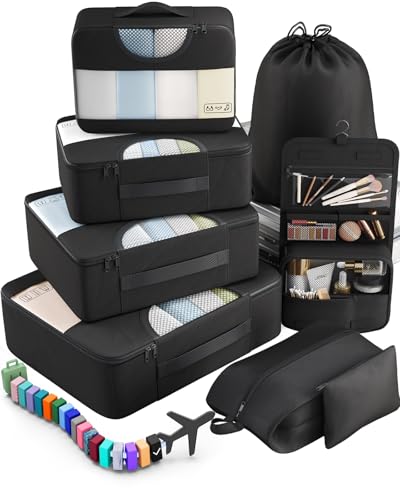In Kumasi, they use Type D and G power plugs and outlets. The voltage is 230V, and the frequency is 50Hz.
So, you’ll need a travel adapter in Kumasi. Their plugs and outlets are different from the Type A and B ones we use back in the States.
Quick Overview of the Plugs in Kumasi:
- Plug type in Kumasi: D and G
- Standard voltage: 230V
- Frequency: 50Hz
- Need a travel adapter? Yes, you do need a travel adapter
- Need a voltage converter? May be required for certain electronics
- Recommended plug adapter: Vintar Universal Travel Adapter Kit
Our details are verified through official power guidelines, international IEC standards, and practical insights from travelers around the world.
The Only Travel Adapter You’ll Need in Kumasi
A cheap, unreliable travel adapter can overheat, fry your devices, or stop working mid-trip—and no one wants that. We don’t sell them, but we’ve done serious research to find the safest and most reliable option for Kumasi. Tested for compatibility, durability, and charging speed, this one won’t let you down:
Recommended Travel Plug Adapter
by 1,000+ travelers on Amazon
If you’re traveling or already at your destination and missing a power adapter, you’ll probably be fine—most airports or stores have them. But bringing your own from home means less stress, better quality, and no need to settle for whatever’s on the shelf.
Kumasi is commonly visited along with Burkina Faso, Togo, or Côte d’Ivoire. Make sure your adapter is suitable for each country.
Power Outlets in Kumasi
In Kumasi, they use Type D and G power plugs and outlets.
Type D

Type D outlets have three large round prongs in a triangular layout and typically only accept Type D plugs, although Type C plugs might fit loosely and are not recommended for safe use.
Type G

Type G outlets have three rectangular prongs in a triangular layout and built-in fuses. Other plug types won’t fit without an adapter.
Do You Need a Voltage Converter?
Before plugging in your electronics in Kumasi, check the voltage. It’s different from the 120V used in the U.S., so you’ll likely need a converter.
Before plugging in your electronics abroad, always double-check the voltage label. If it says “100-240V, 50/60 Hz”, your device will work on both 120V and 220-240V power sources without a converter. This is common for tablets, laptops, cameras, and rechargeable toothbrushes.

Which Travel Devices May Need a Converter?
Want peace of mind while traveling? These top-rated voltage converters are a safe bet.
| Device | Need Converter? | Notes |
|---|---|---|
| Phone | ❌ No (usually) | Most modern phone chargers are dual voltage (100–240V) |
| Laptop | ❌ No (usually) | Check the power brick label for 100–240V |
| Hairdryer | ✅ Yes (often) | High wattage; many models are not dual voltage |
| Electric toothbrush | ⚠️ Check voltage | Some models are 110V only |
| Camera / DSLR | ❌ No (usually) | Most chargers are dual voltage |
| Power bank | ❌ No | Charges via USB, adapter is enough |
| Electric shaver / trimmer | ⚠️ Check voltage | Older or cheaper models may not support 230V |
| Tablet / iPad | ❌ No | All models are dual voltage |
| Portable fan | ✅ Yes (sometimes) | Many models are not compatible with 230V |
| Game console | ⚠️ Check voltage | Newer consoles like PS5 and Xbox are often dual voltage — check to be sure |
| Bluetooth speaker | ❌ No (usually) | Charges via USB |
| E-reader (Kindle, etc.) | ❌ No | USB charging only, no converter needed |
Top Travel Essentials to Pack
It’s always the small, useful things that make travel better. These items might not be obvious, but they sure come in handy.
Digital Luggage Scale
Packing Cubes
Power Bank
More About Kumasi
Kumasi is Ghana’s cultural soul. It’s the capital of the Ashanti region and the heartbeat of the old Ashanti Empire, so tradition runs deep here. The Manhyia Palace Museum gives you an inside look at royal life, and the city is full of craft villages where you can see kente weaving, wood carving, and brasswork up close.
But Kumasi isn’t stuck in the past—it’s a busy, bustling city with one of the largest open-air markets in West Africa. Kejetia Market is massive, chaotic, and completely fascinating. If you want to see local life in full swing, just dive in. There’s also great street food, music everywhere, and a strong sense of pride in everything Ashanti.
Kumasi has its own rhythm, slower than Accra but just as rich. It’s the kind of place where history and everyday life go hand in hand. Come here ready to learn, explore, and maybe get a little lost in the maze of market stalls—you won’t regret it.
Kumasi uses the same plugs and outlets as the rest of Ghana.




